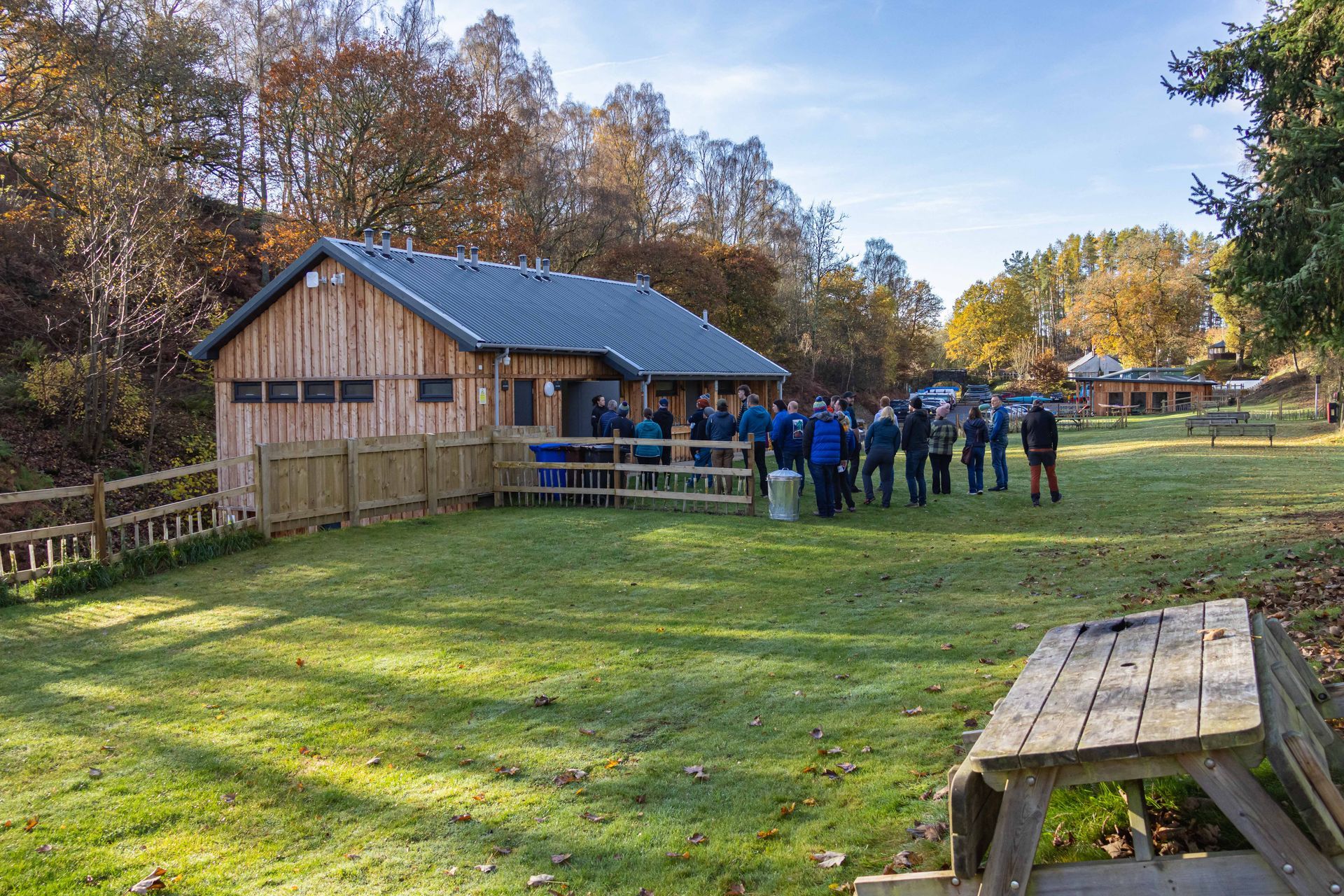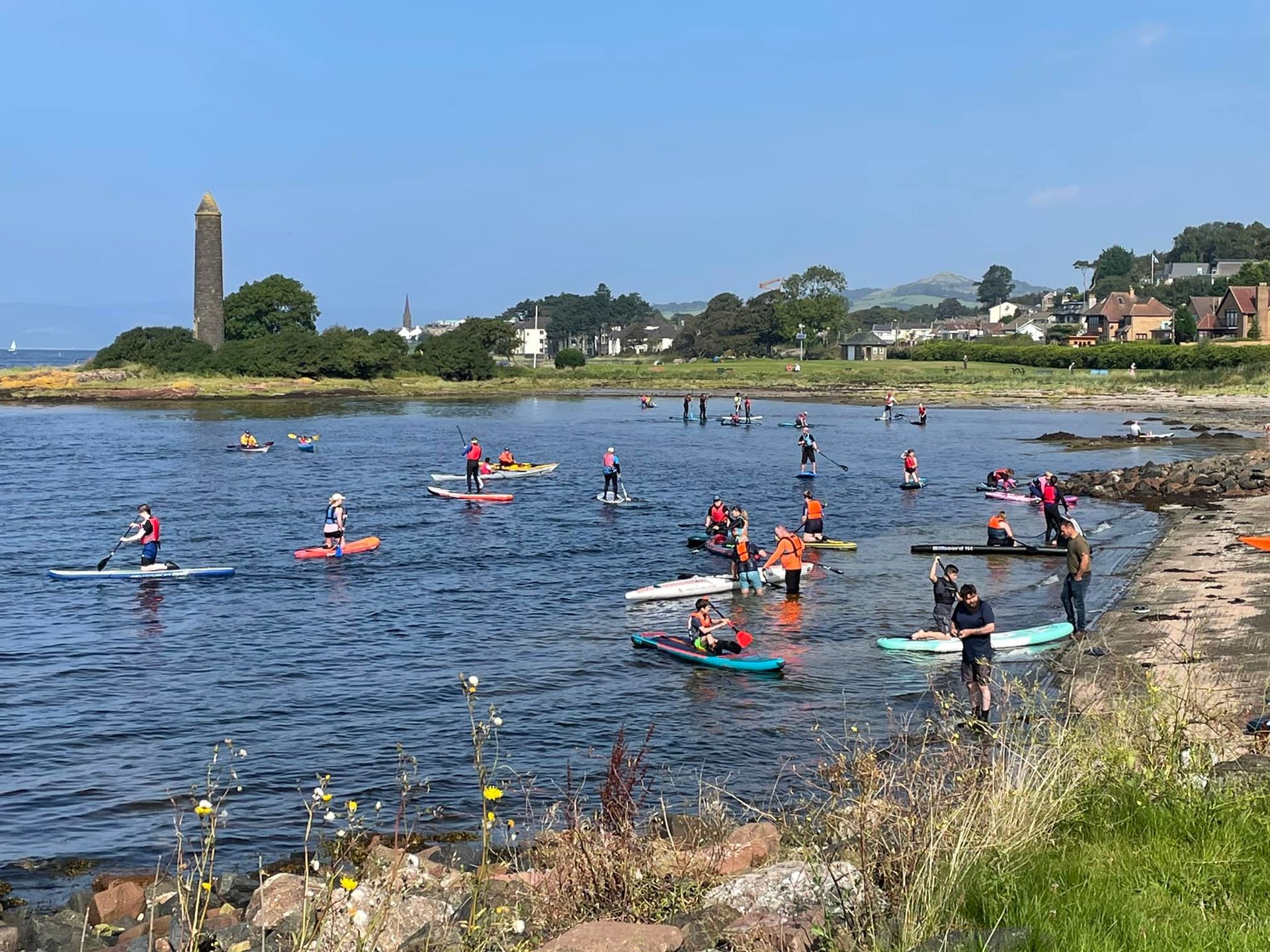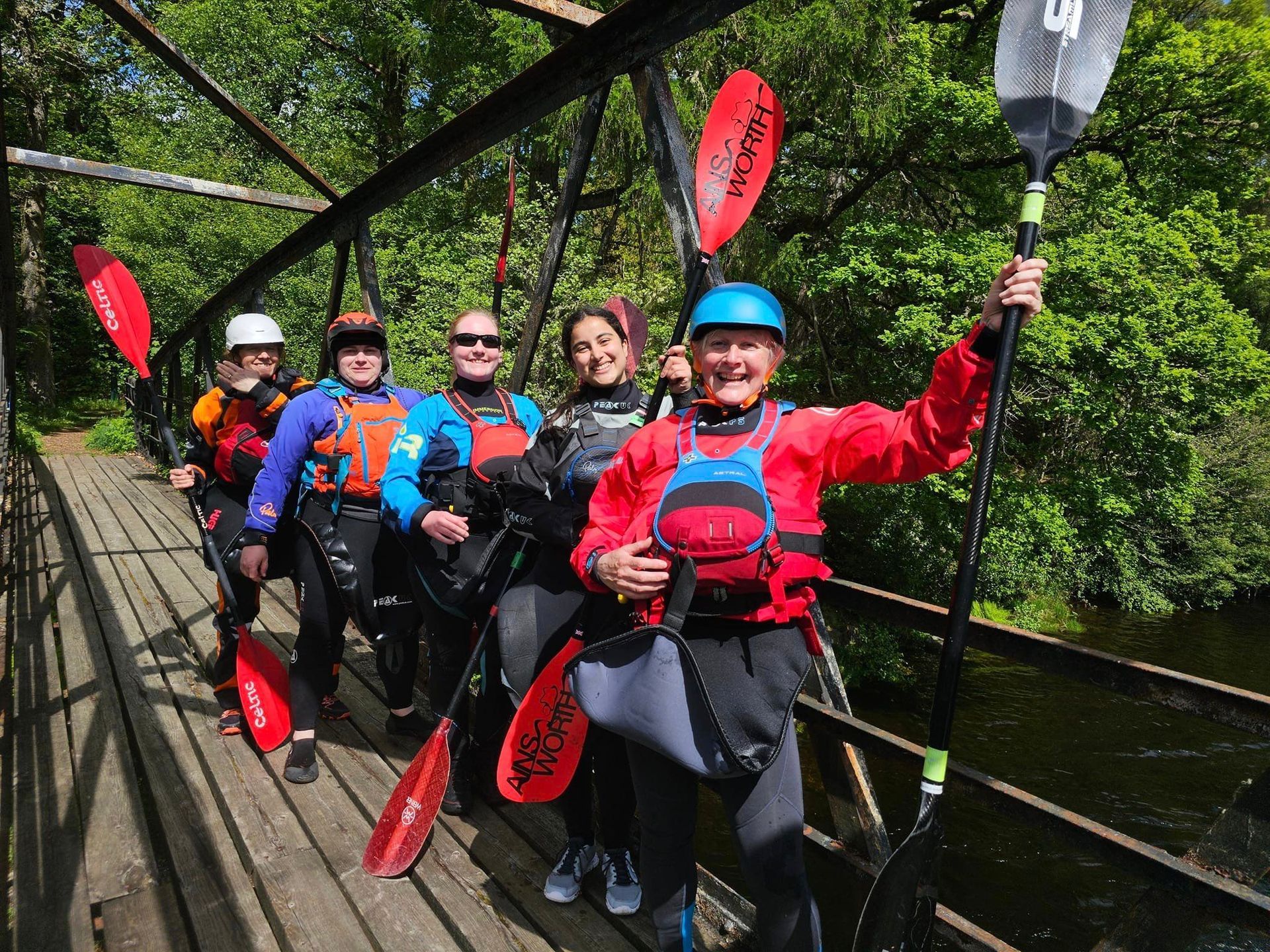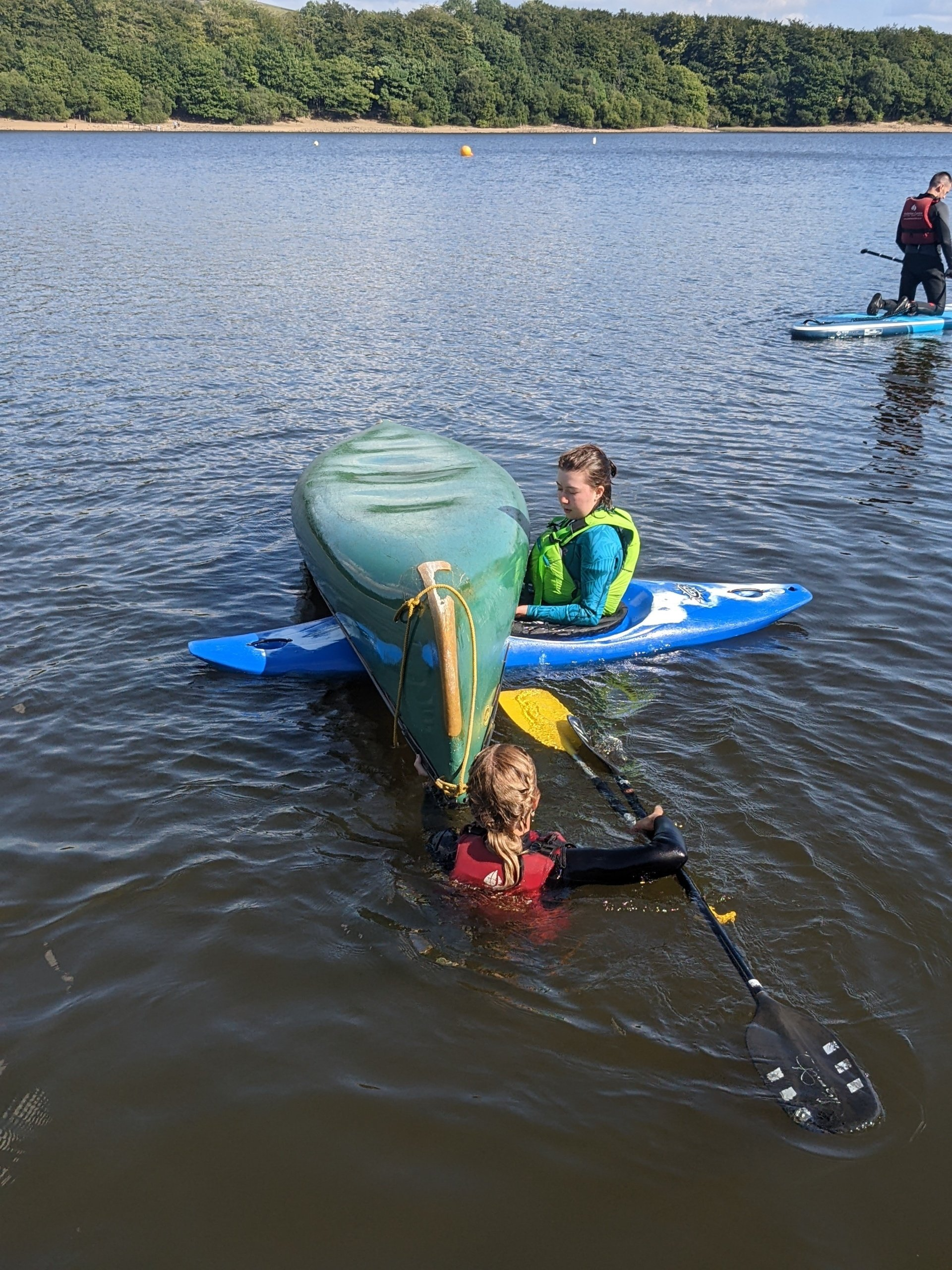The Importance of CHECK CLEAN DRY
If you’re off in search of new waters this summer remember to Check Clean Dry to make sure you don’t bring back more than you bargained for!
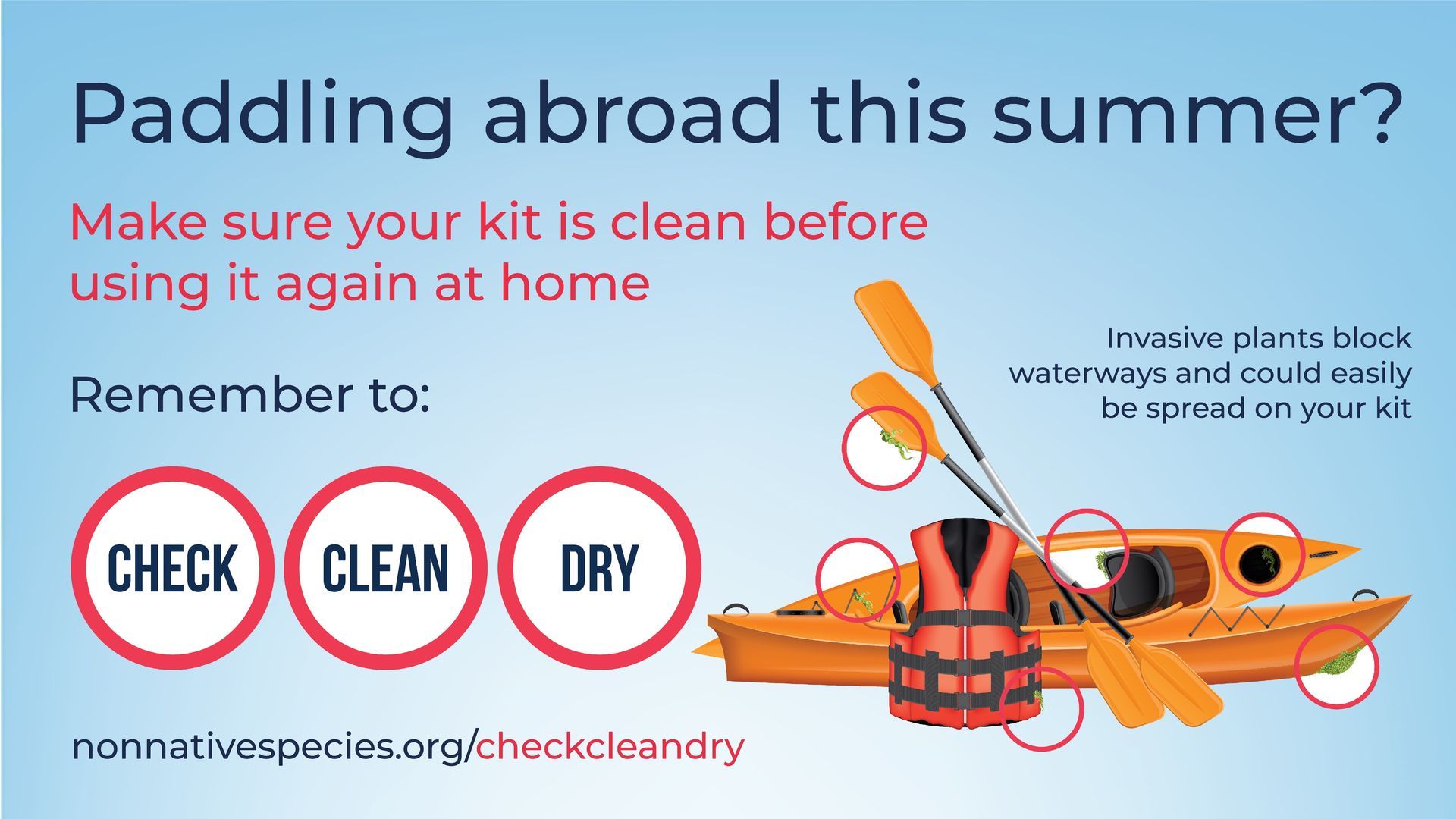
Over fifty different invasive non-native plants and animals from all over the world have been introduced accidentally to British lakes, rivers, and other waterways, and the number of new arrivals is increasing rapidly.
Invasive non-native species are one of the top drivers of global biodiversity loss and cause serious environmental problems here in GB that can be irreversible – killing fish by spreading diseases and reducing the oxygen levels of the water, outcompeting native wildlife for food and space, and damaging whole ecosystems.
They interfere with paddling by clogging up waterways and increase the risk of flooding. Invasive non-native species can be tiny and hard to spot, and some can survive out of water for over two weeks in damp conditions. You could be spreading them on your damp boat, paddleboard, clothing, or equipment without realising.
Help protect the environment and activities you enjoy by remembering to Check Clean Dry your boat, paddleboard, clothing and equipment when you leave the water. It’s even more important to Check Clean Dry if you’re taking your boat or kit abroad to make sure you don’t bring any plants or animals back with you. Make sure everything is clean and has been dried thoroughly before you use it again at home.
- CHECK boats, paddleboards, equipment and clothing after leaving the water for mud, aquatic animals or plant material. Remove anything you find and leave it at the site.
- CLEAN everything thoroughly as soon as you can, paying attention to the inside of your boat, and areas that are damp and hard to access. Use hot water if you can.
- DRY – drain water from every part of your boat and dry with a sponge or towel before leaving the site. Dry everything for as long as possible before using elsewhere as some invasive plants and animals can survive for two weeks in damp conditions.
Find out more about invasive plants and animals and how you can help to stop the spread at: www.nonnativespecies.org/checkcleandry. Free awareness raising materials are available to help protect your club waters, contact nnss@apha.gov.uk to order these.
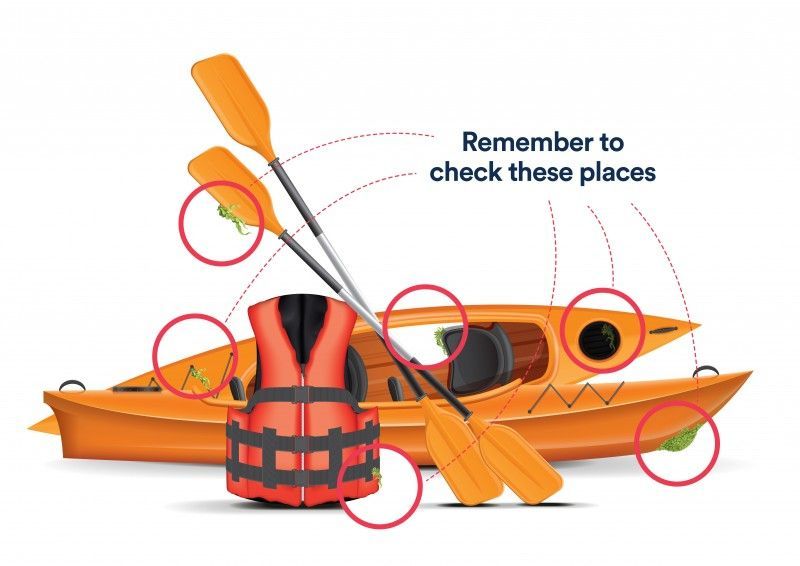
Thanks to Lucy Cornwell, Communications Officer at GB Non-Native Species Secretariat for contributing this article.

